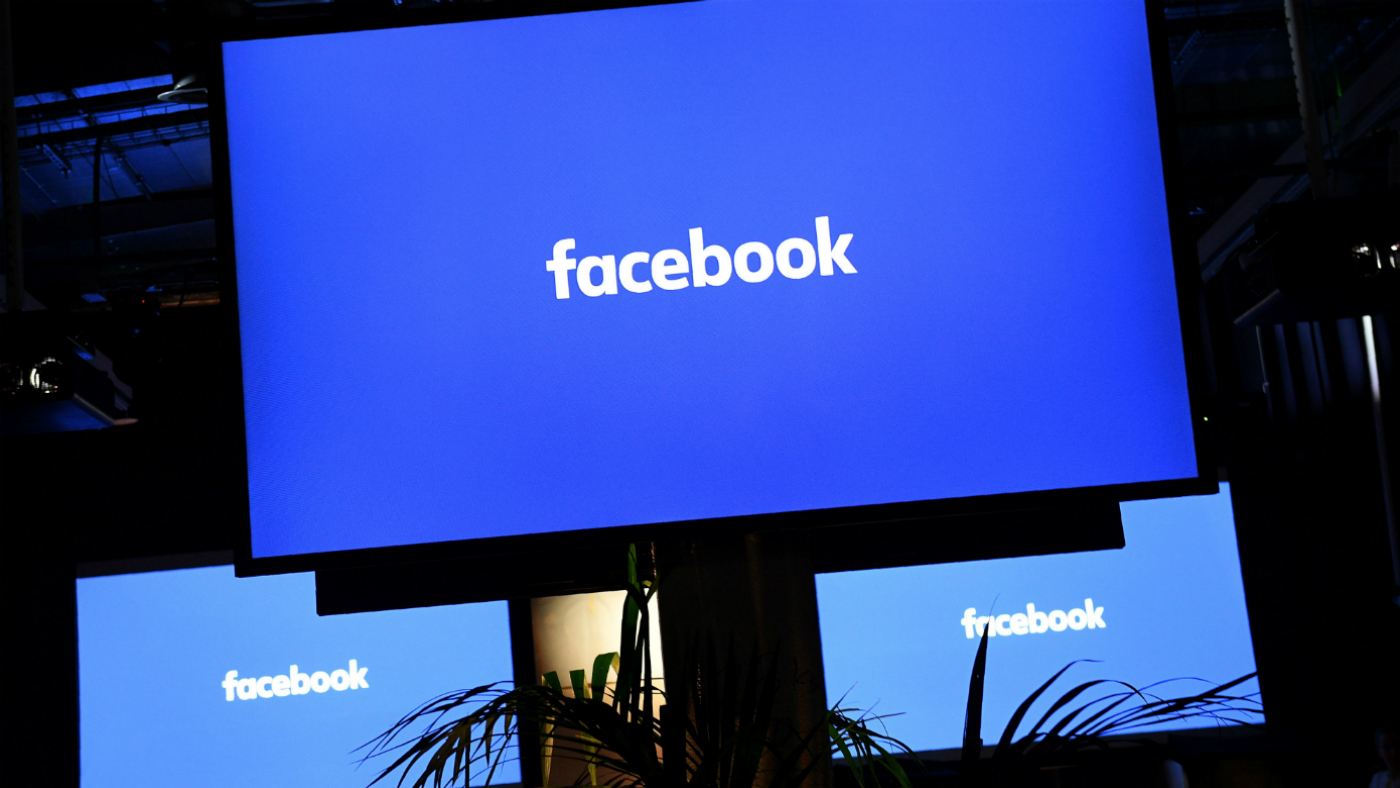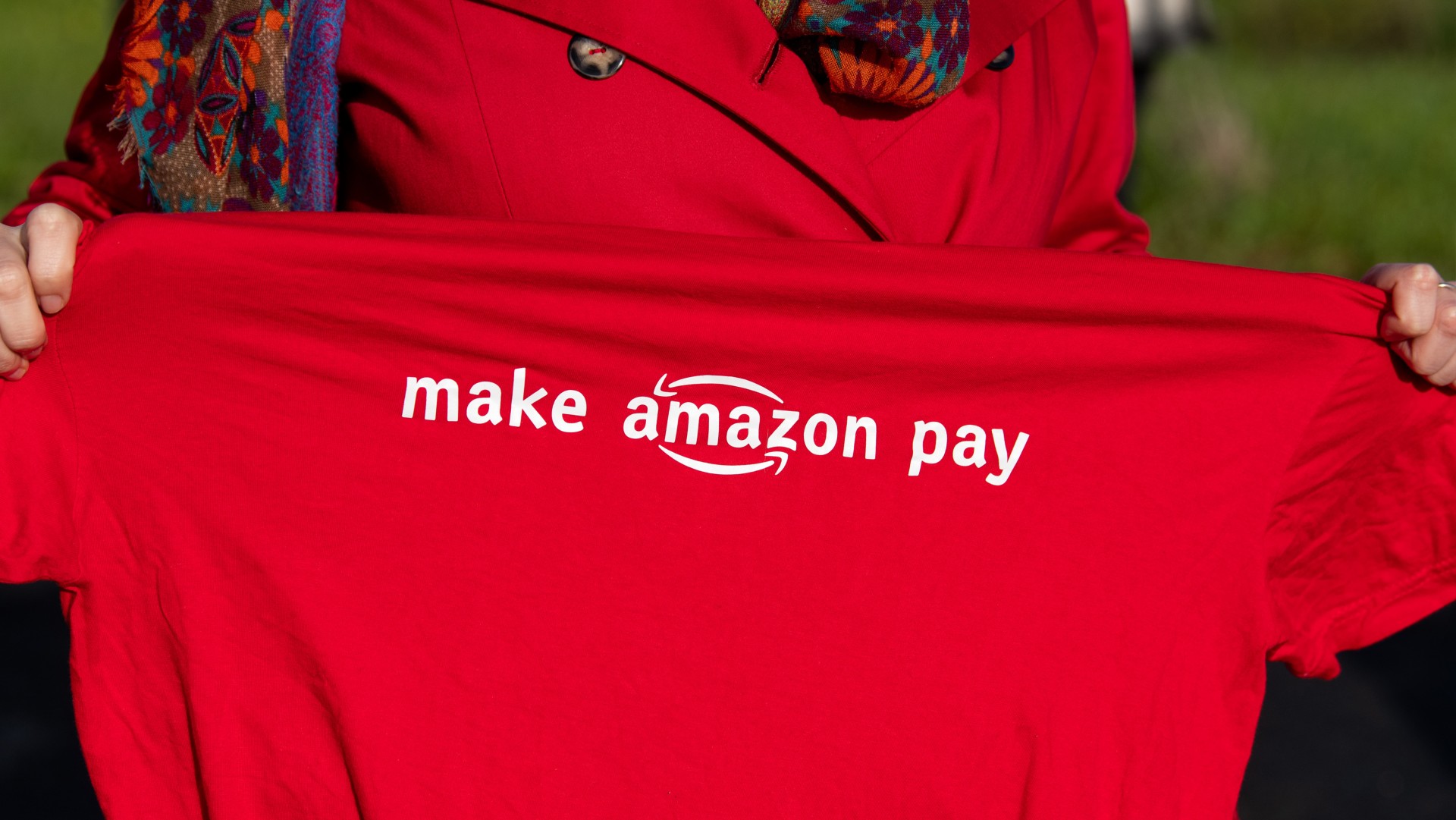Facebook profits surge 71% in second quarter
News feed advertising rates soar despite slowdown in growth of new ad positions

A free daily email with the biggest news stories of the day – and the best features from TheWeek.com
You are now subscribed
Your newsletter sign-up was successful
Facebook to cut £280m from tax bill through bonus awards
5 October
After making headlines by appearing to volunteer to pay millions more in tax at the end of last week, Facebook was back in the news over apparent tax avoidance plans yesterday.
Reports in the Sunday Times said that over the next three years, the company was planning to pay out some £280m in share bonuses to staff - around £775,000 each - reducing the amount of net profit on which it would have to pay corporation tax.
The Week
Escape your echo chamber. Get the facts behind the news, plus analysis from multiple perspectives.

Sign up for The Week's Free Newsletters
From our morning news briefing to a weekly Good News Newsletter, get the best of The Week delivered directly to your inbox.
From our morning news briefing to a weekly Good News Newsletter, get the best of The Week delivered directly to your inbox.
This means a huge chunk of the hundreds of millions of pounds the company has vowed to register through its UK arm would be offset and its tax bill substantially reduced.
The immediate reaction to the news was indignation that Facebook might again be finding a creative way to avoid paying its fair share - a bumper payout to staff in 2014 reduced its tax bill to just £4,317.
But others pointed out that the bonus awards would likely result in more tax being paid as the company would effectively be shifting the tax liability to its staff, who are paid an average of £210,000 even before the payouts and so taxed at the much higher rate of 45 per cent.
In simple terms, corporation tax is set at 20 per cent - although it will fall in the coming two years - so if Facebook's profit before the awards were £280m, then it would pay a levy of £56m.
A free daily email with the biggest news stories of the day – and the best features from TheWeek.com
However, at 45 per cent, the income tax receipts would generate £126m.
Facebook's 2014 bonus award of £35.4m resulted in a net loss of £28.5m and it is carrying an overall deferred loss for tax purposes of £21.4m, according to the Sunday Times. This could be used to further offset tax bills in the future.
The bigger issue is whether the company is being truly transparent about the issue, said Crawford Spence, a professor of accounting at Warwick Business School.
“The continuing lack of transparency over Facebook’s actual UK revenues makes it difficult to know whether these changes will [result] in them paying a ‘fair share’ of tax," he said.
Facebook to pay millions more in UK tax
04 March
Facebook will pay millions of pounds more in tax in the UK after overhauling its tax structure, reveals the BBC.
Profits from the majority of the company's advertising revenue initiated in Britain will now be taxed in the UK, rather than being routed through Ireland.
Kamal Ahmed, the BBC's economics editor, says: "I am told the change will mean that Facebook will account for substantially more revenue in the UK and will therefore pay a higher level of corporation tax on the profits it makes here."
The move comes after the social network giant faced an avalanche of criticism over its tax arrangements. There was uproar when it was revealed that the company in 2014 paid £4,327 in corporation tax in the UK, one of its biggest markets, while last month, a new regulatory filing revealed a very low four per cent was paid on the social networking giant's worldwide activities in 2015.
Facebook hopes the overhaul will help its image. "In light of changes to tax law in the UK, we felt this change would provide transparency to Facebook's operations in the UK," says an internal company post.
"The new structure is easier to understand and clearly recognises the value our UK organisation adds to our sales through our highly skilled and growing UK sales team."
The social media giant is not the only internet company to come under attack for its tax arrangements - in January, Google's agreement to pay £130m in back taxes after an inquiry by HMRC was widely criticised as being "derisory".
However, Facebook sources insist the Google settlement had nothing to do with their move and that it has been planned "for some time".
Facebook paying just 4 per cent tax on global profits
1 February
Facebook's tax affairs are once again in the spotlight as a new regulatory filing reveals a very low four per cent was paid last year on the social networking giant's global activities.
In a return filed with the US stock market last week, the company recorded combined tax payments to authorities outside of its home country of just $123m (£86m), the Sunday Times notes, despite racking up profits of $3.4bn (£2.37bn). There is no suggestion it has done anything illegal, but the stark figures lay bare the increasingly bitter row over apparent corporate tax avoidance.
A lot of Facebook's online advertising sales are not booked in the countries in which the customers are based, where it often only reports revenues from small marketing arms that barely turn a profit. Some of the earnings made outside the US are funnelled through a subsidiary in the Cayman Islands, a noted tax haven where the corporation tax rate is zero.
In the UK, the sales arm earned revenues of £105m in 2014 and would have posted profits of £7m, but it paid out share-based bonuses to staff totalling £35m, which left it nursing a loss and with a tax bill of just £4,327. Tax paid by individuals on this income would have exceeded the corporate tax take on its pre-payout operating profits – but the nagging question of whether the company is fairly representing its UK activities in its official filing here remains.
Nor is it just Facebook. Google has been engulfed in a row over its £130m payment to HMRC for ten years of back taxes, a figure decried as a "derisory" insult by some. Elsewhere, there have been headlines over zero or negligible tax being paid by the likes of Cadbury and Netflix.
Today, The Times reports on another batch of big companies that paid no taxes last year, naming oil majors BP and Shell, which made sizeable global profits, and pharmaceuticals giants AstraZeneca and GlaxoSmithKline. In fact, GSK received a £251m tax credit after "adjustments for previous years and deferred tax losses relating to a deal with Novartis".
Again, none of the companies is thought to have done anything officially wrong. BP and Shell quite simply made losses on their UK-based North Sea activities amid the oil price slump, while AstraZeneca noted the expiry of drug patents and major research investments and GSK pointed to around £2.7bn of taxes it has paid over the past 15 years.
In the middle of all of this, the government was embarrassed at the weekend by revelations in The Observer that Conservative MEPS in Europe have been privately lobbying against a crackdown on tax havens, including the blacklisted zero-corporation tax haven of Bermuda, calling proposed sanctions "misleading and deeply unhelpful".
Facebook drawn into Google tax-deal row
27 January
Facebook has become the latest US technology giant to be drawn into the increasingly bitter row over apparent corporate tax avoidance in the UK.
Just days after Google failed to take the heat off its own tax affairs by agreeing a £130m payment to HMRC, the Financial Times reveals Facebook is fighting attempts to secure a similar settlement over previous years. The company has set aside a sum to cover a "possible, but not probable" charge, but left the amount undisclosed "because it expects to win the dispute".
The social media giant is being audited by HMRC over taxes that may have fallen due between 2010 and 2014. For the last of these years, its accounts showed it paid just £4,327 in corporate tax, although this was in part because it handed out more than £35m worth of bonuses to staff that would have given rise to hefty income tax and national insurance bills.
Of greater concern – and relevance to the wider dispute – than whether or not these bonuses constituted an avoidance mechanism is the question of whether the revenues and profits in Facebook's UK arm fairly reflect its activities here. It reported £105m of income in the UK in 2014, despite taking much more in advertising spend from UK customers.
"Among the possible areas of dispute are whether Facebook will have to admit to a permanent establishment — and a taxable presence — in the UK, and over so-called transfer pricing, which determines whether disclosed profit reflects where economic activity takes place," notes the FT.
Google similarly banked most of its profits overseas, which it said explains why its UK tax bill, even after the payment to HMRC, equates to a single-digit percentage that some have labelled "derisory". The company said change to international tax rules and implemented by the UK would change how it reported earnings and was taxed.
Anger over the Google payment refuses to die down, with the issue being a key debate point during Prime Minister's Questions in parliament today. ITV News's Robert Peston says executives from the company have also been summoned to appear before the public accounts committee.
Embarrassment for the government over what is seen as a soft deal could also be heightened by deals in Italy and France worth the same or even more, despite Google have much smaller operations there, The Times notes. Discussions are, though, still ongoing and the legal position should the company refuse to pay up remains untested.
Has Facebook avoided paying UK taxes?
12 December
Facebook is the latest multinational giant to be criticised in the UK press for apparently using accounting tricks to legally reduce its British tax bill.
The BBC says that the social networking giant paid just £4,327 in corporation tax in 2014. This is being widely derided as a desultory sum for a company that reported revenues of £105m from UK activities last year. At £4,327, the figure is even less than the average tax and national insurance bill of the average UK worker. Employees earning an average UK salary of £26,500 pay a total of £5,393 in income tax.
Facebook's bill was reduced in part by a share bonus scheme that saw a total of £35.4m worth of stock handed to UK staff, pushing it into a net loss of £28.5m. Its 326 staff received an average of £96,000 worth of shares, taking the median wage for employees to £210,000, reports the Guardian.
But this could mean that the scheme resulted in more tax being paid. Share bonuses are taxed as income through self-assessment returns, but do not attract national insurance. Facebook confirmed all staff had paid income tax on the awards.Given the size of the bonuses, workers would most likely have paid at least 40 per cent and in some cases 45 per cent income tax, compared to last year's main corporation tax rate of 21 per cent. This means at least £14.2m would have gone to the Treasury, compared to around £1.45m in taxes on the net profit it would have otherwise made. In essence, Facebook's bill went down but the overall tax paid may have gone up.
Of course, the Guardian notes, this only holds if Facebook's revenue and profit figures accurately reflect its UK activities. The company reported global revenues of $2.9bn last year.
John Christensen, the director of campaign group the Tax Justice Network, said it is "very likely they’re using all the usual techniques to shift profits around". A spokesperson for Facebook said it is "compliant with UK tax law, and in fact in all countries where we have operations and offices".
Companies that shift global profits into areas with the lowest tax are likely to suffer from new global tax rules proposed by the OECD, which would require activities to be reported and taxed on a more transparent country-by-country basis. The chancellor George Osborne has said that the UK could introduce the rules as soon as next month.
-
 Film reviews: ‘Send Help’ and ‘Private Life’
Film reviews: ‘Send Help’ and ‘Private Life’Feature An office doormat is stranded alone with her awful boss and a frazzled therapist turns amateur murder investigator
-
 Movies to watch in February
Movies to watch in Februarythe week recommends Time travelers, multiverse hoppers and an Iraqi parable highlight this month’s offerings during the deep of winter
-
 ICE’s facial scanning is the tip of the surveillance iceberg
ICE’s facial scanning is the tip of the surveillance icebergIN THE SPOTLIGHT Federal troops are increasingly turning to high-tech tracking tools that push the boundaries of personal privacy
-
 Is Mark Zuckerberg out of ideas?
Is Mark Zuckerberg out of ideas?Speed Read The subscription service Meta Verified sounds awfully familiar
-
 How Amazon’s first UK strike could be a sign of things to come
How Amazon’s first UK strike could be a sign of things to comefeature Big Tech is facing increasing pressure from unions as cost-of-living crisis fuels nationwide unrest
-
 Meta: Zuckerberg's grand bet goes badly wrong
Meta: Zuckerberg's grand bet goes badly wrongfeature
-
 Leaning out: The most powerful woman in tech moves on
Leaning out: The most powerful woman in tech moves onfeature
-
 Sheryl Sandberg’s mixed legacy
Sheryl Sandberg’s mixed legacyIn the Spotlight The most important woman in tech is leaving Meta. Will she be missed?
-
 How toxic superusers determine what everyone else sees on Facebook
How toxic superusers determine what everyone else sees on FacebookSpeed Read
-
 Meta’s big plunge: ‘Zuck shock’ is a nasty ‘brush with reality’
Meta’s big plunge: ‘Zuck shock’ is a nasty ‘brush with reality’In the Spotlight Why have the social media giant’s shares fallen off a cliff?
-
 Facebook lost daily users for the 1st time in its history last quarter, and investors were not pleased
Facebook lost daily users for the 1st time in its history last quarter, and investors were not pleasedSpeed Read